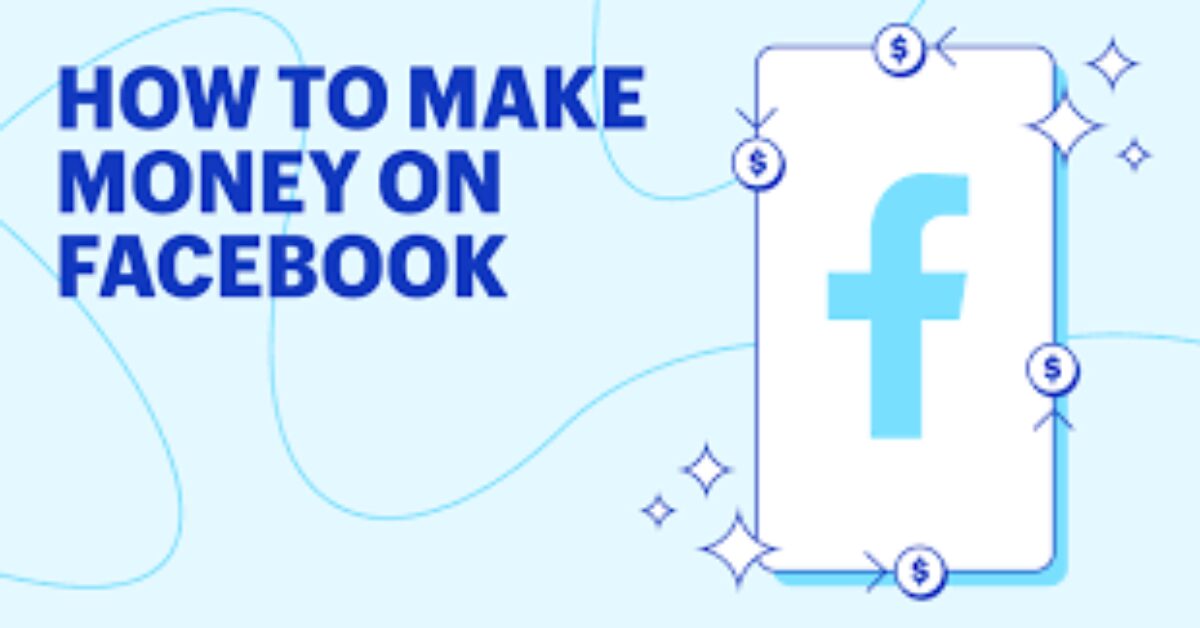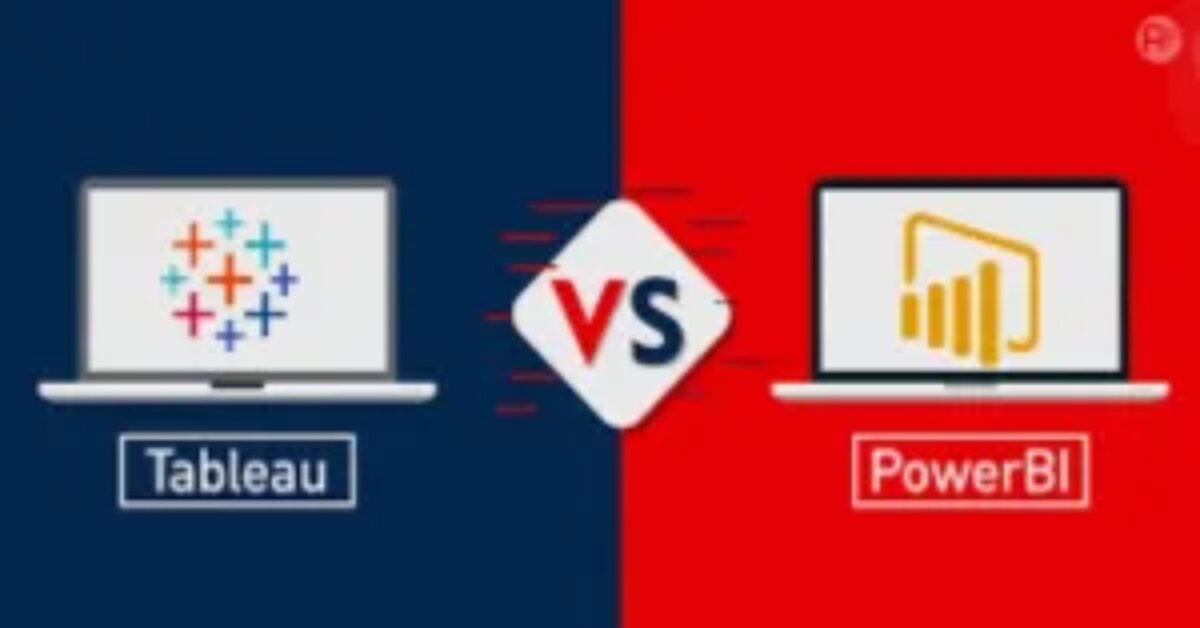Blog
How can I Earn Through Facebook? 6 Best Ways (2024)

How can I earn through Facebook? There are many authentic ways to earn through Facebook but the first important is knowing about Facebook’s monetization policy.
Before start earn through Facebook: review our Facebook Monetization Eligibility
There are a handful of methods for how can I earn through Facebook or Facebook content, but first, we must be eligible to do so. This means our Facebook page and the content we post on it must according to the platform’s eligibility conditions, which are grouped into 3 major categories:
- Facebook Community Standards: these are the platform’s foundational laws, such as no graphic or hazardous content
- Partner Monetization Policies: these laws are for our Facebook page as a whole, as nicely as the content we create, how we share our content, and how we receive and make online payments
- Content Monetization Policies: these are content-level laws that use for every piece of content we post, such as no violent or offensive content
To check the eligibility, go to the Facebook section of our Creator Studio and press on the Monetization tab. Choose which pages we want to see our monetization eligibility for—we will also be providing other monetization information about the page.

Once we’re eligible to monetize our Facebook content, staying eligible is essential if we like to sell on Facebook. Regularly check the platform’s Community Standards, keep our domain pure with high-quality content, and ensure we have the rights to post our content. If for some cause our page becomes ineligible, Facebook will inform us through the Monetization tab in our Creator Studio dashboard, along with the reason we’re no longer eligible.
How can I Earn Through Facebook?
How can I earn through Facebook? 6 Best ways are listed below:
- Create videos with in-stream ads
- Add a paid subscription to our page
- Cooperate with brand
- Earn cash directly from your fan
- Run paid events online
- Drive customers to your online store
1. Create videos with in-stream ads
In-stream ads attract the engagement of a captured audience and are perfect for creators and brands with a suitable audience. When a user are halfway through monitoring a Facebook video, they are more likely to watch the whole of an ad if it indicates they can resume on with the authentic content—unlike a standalone ad in their feed, which they’re better probably to skip.
In-stream ads in action:
Water Bottled brand LIFEWTR wanted to boost brand awareness and develop a positive, innovative view of its creation. So it executed quick in-stream ads that ran in the middle of feed videos as nicely as effects like Facebook Watch, showcasing its community art tasks through effective graphic stories. The campaign resulted in a two-times ride in brand awareness and a 1.9 times more elevated lift in ad remembrance.

Why it performed: LIFEWTR used in-stream ads to convey a story and maintain the concentration of an already-captive audience.
Get started: Think about what we want to reach with our videos or posts and what stories we can tell about our brand. If we like to promote mid-roll, attempt adding in one- to two-second natural breaks when we create our videos where an in-stream ad could slot in.
As nicely as completing Facebook’s eligibility criteria, videos must be over one minute in size and influencers need at least 10,000 page followers to execute in-stream ads. These tips are used by brands that like to pay to execute in-stream ads.
2. Add a paid subscription to our page
Develop consistent monthly income via fan subscriptions, which enable our most faithful followers to produce a regular sum to finance our page. This is a significant method for brands and developers with large, engaged audiences to monetize their pages and bonus fans with complete content and discounts. The “stars” characteristic lets users purchase a pack of stars to send guidance to their favorite creators for extra earnings.
Fan subscriptions in action:
The Vegan Baker has assembled an individual Facebook Group for followers of the brand. Fans are charged $4.99 a month to access entire content and discounts. They are also capable of sending better advice through Facebook’s stars feature for a bit of content they especially appreciate.

Why it worked: The Vegan Baker can monetize its engaged audience while awarding users with premier content. The stars element enables the brand to determine which types of content serve best and boost engagement with a tight-knit characteristic of its supporters.
Get started: Fan subscriptions are only open on an invitation base at this point. Users can open fan subscriptions when they have 10,000 followers or more than 250 rescue watchers, and either 50,000 post engagements or 180,000 watch minutes.
Once we’ve accepted our invitation, we can select what advantages we like subscribers to get, produce a promotional video to establish our subscription courtesy, and film a thank you video to receive new subscribers.
3. Cooperate with brands
Produce content with a suitable, complementary partner to boost our reach and diversify our content output. There is an abundance of brands that like to work with influencers, inventors, and other organizations to get new audiences and boost brand awareness, and this can be a significant method to boost our supporter count and develop engagement.
Brand collaboration in action:
StyleNow Feed partnered with Jasper’s Boutique to get followers of both brand’s new content. The paid partnership permitted the two firms to cooperate on suitable content that aligned with the requirements of both their followers and users and could connect on each part of the content to understand more about each brand.

Why it worked: The 2 brands are well-settled and have identical but not identical audiences, which meant they could open a new feature of followers by getting users who already had a powerful relationship with the associate brand.
Get started: Before we can start labeling business fellows in posts, we have to ask for access. Once we’ve done that, we can access cooperation opportunities and view understandings inside the Brand Collabs Manager.
This kind of monetization strategy is most useful for Pages with an engaged, faithful following who post content that most labels won’t view as dangerous.
4. Earn cash directly from your fans
Fans who sign up for Facebook Stars can purchase Stars to exhibit their gratefulness for your content. When a watcher watches one of your live streams or plays your videos or Reels, they can press the Star icon to send stars to your developer page. Facebook will spend $0.01 for every Star you obtain on your content.
5. Run paid events online
Engage supporters through a live event they can want from the reassurance of their own homes. Facebook’s paid events part lets you plan, set up, and handle events through your page, which is excellent for creators and companies moving in-person events online.
6. Drive customers to your online store
Direct shoppers from your Facebook page to your Shopify store or site via the platform’s social business components. This is a significant method for brands who already have a small business on Facebook to catch customers mid-scroll with shoppable ads and effective calls to action. You can rotate well-performing shoppable posts into spent ads to drive more traffic and represent a new target audience you’d want to reach.
Related to: 9 Best Secret Websites to Make Money in 2024
Technology
“Power BI vs Tableau: Which Reigns is Best or Supreme in 2024?”

Introduction to Power BI vs Tableau:
In the world of information visualization and analytics, Power BI vs Tableau stand out as two of the most unmistakable gadgets. Each has its qualities and lacks, catering to contrasting needs and inclines. Understanding the contrasts between Power BI and Tableau is pivotal for making an instructed choice about which contraption best suits your necessities.
Background of Power BI and Tableau:
Both Power BI and Tableau have picked up broad ubiquity over a long time, revolutionizing how businesses analyze and visualize information. Control BI, created by Microsoft, entered the showcase in 2013, whereas Scene, established in 2003, has been an overwhelming player for longer. In spite of their varying timelines, both apparatuses have advanced altogether, joining progressed highlights and functionalities.
Purpose and Functionality:
Power BI and Tableau serve the common reason for changing crude information into noteworthy experiences. In any case, they utilize unmistakable approaches to accomplish this objective. Control BI, profoundly coordinates with the Microsoft environment and offers a consistent network with Exceed expectations, SQL Server, and other Microsoft items. On the other hand, Scene gloats a more instinctive and user-friendly interface, making it a favorite among information visualization devotees.
Cost and Licensing Models:
Taken contemplations play a noteworthy part in the decision-making handle for businesses assessing Control BI vs. Scene. Control BI offers a run of estimating alternatives, counting a free form with restricted highlights and subscription-based plans for people and endeavors. The scene, in the meantime, takes after a layered estimating structure, with diverse estimating levels based on the highlights and functionalities required.
Data Connectivity and Integration Capabilities:
The capacity to interface to and coordinated with different information sources is a vital angle of any information analytics apparatus. Control BI and Scene back a wide run of information connectors, empowering clients to get to information from different sources such as databases, cloud administrations, and spreadsheets. In any case, Control BI’s local integration with Microsoft items gives it a competitive edge for organizations intensely contributed in the Microsoft environment.
Visualization Capabilities and Customization Options:
The adequacy of an information visualization device pivots on its capacity to make compelling and quick visualizations. Both Control BI and Scene offer plenty of visualization choices, counting charts, charts, maps, and dashboards. Whereas Control BI gives a strong set of visualization devices, Scene exceeds expectations in terms of adaptability and customization, permitting clients to make exceedingly intuitive and energetic visualizations.
Learning Curve and User Experience:
Blog
Artificial Intelligence Ticketing: Best Your Shortcut to Smarter Operations in 2024
Blog
Quantum Artificial Intelligence Elon Musk in 2024: Pioneering the Future.

Quantum Artificial Intelligence Elon Musk
In cutting-edge technology, the fusion of quantum mechanics and artificial intelligence (AI) stands at the forefront of innovation. Quantum Artificial Intelligence Elon Musk represents a paradigm shift in computing capabilities, with the potential to revolutionize industries ranging from healthcare to finance. At the helm of this transformative journey is the visionary entrepreneur, Elon Musk.
Introduction to Quantum Artificial Intelligence (QAI)
Quantum Artificial Intelligence harnesses the principles of quantum mechanics to perform complex computational tasks beyond classical computers’ reach. Unlike classical bits, which can only exist in a state of 0 or 1, quantum bits or qubits can exist in multiple states simultaneously, enabling exponential leaps in processing power.
Understanding Quantum Computing Artificial Intelligence

To comprehend the significance of QAI, one must grasp the fundamentals of quantum computing. Quantum computers leverage phenomena such as superposition and entanglement to perform computations at unparalleled speeds, solving problems that would take classical computers eons to crack.
Applications of Quantum Computing Artificial Intelligence
The applications of quantum computing Artificial Intelligence span a myriad of fields, including cryptography, drug discovery, and optimization. Quantum cryptography ensures secure communication channels, while quantum algorithms expedite the discovery of life-saving drugs and streamline logistical operations.
Challenges in Quantum Computing Artificial Intelligence
Despite its immense potential, quantum computing faces formidable challenges such as error correction, scalability, and quantum decoherence. Overcoming these hurdles is essential for realizing the full capabilities of QAI.
Elon Musk’s Interest in Quantum AI
Quantum Artificial Intelligence Elon Musk, the maverick entrepreneur behind Tesla, SpaceX, and Neuralink, has long been vocal about the potential risks and rewards of artificial intelligence. His foray into quantum AI underscores his commitment to pushing the boundaries of technological innovation.
Tesla’s Potential Integration with Quantum AI
Tesla’s pursuit of autonomous driving technology could benefit immensely from the integration of quantum AI. The intricate decision-making processes involved in self-driving cars could be optimized using quantum algorithms, enhancing safety and efficiency on the roads.
SpaceX and Quantum AI
SpaceX, Musk’s aerospace venture, could leverage Quantum Artificial Intelligence Elon Musk to revolutionize space exploration. From trajectory optimization to data analysis, quantum algorithms could bolster the capabilities of SpaceX missions, propelling humanity further into the cosmos.
Neuralink and Quantum AI
Neuralink, Musk’s ambitious venture to merge the human brain with AI, presents intriguing possibilities for synergy with quantum computing. The marriage of Quantum Artificial Intelligence Elon Musk and brain-computer interfaces could unlock new frontiers in human cognition and machine learning.
OpenAi and Quautum AI Research

As the founder of OpenAI, Musk has championed the cause of AI research and development. Collaborations between OpenAI and quantum computing experts could pave the way for groundbreaking advancements in AI capabilities.
Implications for the Future
The advent of Quantum Artificial Intelligence Elon Musk heralds a new era of innovation and disruption. From personalized medicine to climate modeling, Quantum Artificial Intelligence has the potential to address some of humanity’s most pressing challenges while raising ethical questions about its implications.
Conclusion
In conclusion, Quantum Artificial Intelligence Elon Musk underscores his visionary approach to technological advancement. By harnessing the power of quantum computing, Musk aims to push the boundaries of AI capabilities and propel humanity into a future limited only by imagination.
Unique FAQs
How does quantum AI differ from traditional AI?
- Quantum AI leverages the principles of quantum mechanics to perform computations at exponential speeds, whereas traditional AI relies on classical computing architectures.
What are the main challenges facing quantum computing?
- Error correction, scalability, and quantum decoherence are among the primary challenges impeding the widespread adoption of quantum computing.
How could quantum AI impact everyday life?
- Quantum AI could revolutionize industries ranging from healthcare to finance, enabling breakthroughs in drug discovery, financial modeling, and personalized medicine.
What role does Quantum Artificial Intelligence Elon Musk?
Elon Musk’s ventures, including Tesla, SpaceX, and Neuralink, are at the forefront of exploring the potential applications of quantum AI in various domains.
Are there any ethical concerns surrounding quantum AI?
- Ethical considerations, such as data privacy, algorithm bias, and the potential for job displacement, must be carefully addressed as quantum AI technologies continue to evolve.
Exploring Quantum Artificial Intelligence Elon Musk’s Vision

The Intriguing Intersection of Quantum Mechanics and Artificial Intelligence
Quantum Artificial Intelligence (QAI) stands as a testament to human ingenuity, merging the abstract principles of quantum mechanics with the practical applications of artificial intelligence. Traditional computing, based on classical physics, has its limitations, particularly when faced with immensely complex problems. Quantum computing, however, offers a tantalizing glimpse into a realm where computation occurs at the quantum level, opening doors to unprecedented computational power and efficiency.
Elucidating the Enigma: Quantum Computing Artificial Intelligence Principles
At the heart of quantum computing Artificial Intelligence lies a set of principles that defy conventional understanding. Concepts such as superposition and entanglement form the bedrock upon which quantum algorithms operate. Superposition allows qubits to exist in multiple states simultaneously, while entanglement links the states of qubits, enabling instantaneous correlation across vast distances. These phenomena, seemingly paradoxical, underpin the extraordinary capabilities of quantum computers.
Unveiling Quantum Computing’s Multifaceted Applications
The applications of quantum computing Artificial Intelligence extend far beyond theoretical speculation, manifesting in tangible advancements across various industries. Quantum cryptography, for instance, leverages the inherent security of quantum systems to safeguard sensitive information against prying eyes. Similarly, quantum algorithms hold promise in accelerating the discovery of novel pharmaceutical compounds, revolutionizing drug development pipelines, and improving patient outcomes.
Navigating the Treacherous Terrain: Challenges in Quantum Computing Artificial Intelligence
Despite its immense potential, the path to practical quantum computing is fraught with challenges. Error correction mechanisms are paramount, as quantum systems are inherently susceptible to noise and interference. Moreover, scalability remains a pressing concern, with current quantum hardware struggling to accommodate the demands of large-scale computations. Quantum decoherence, the bane of quantum systems, poses yet another obstacle, threatening to unravel delicate quantum states before useful computations can be completed.
Elon Musk: A Trailblazer in the Technological Landscape
Elon Musk’s endeavors transcend the boundaries of conventional industry, epitomizing the spirit of innovation and disruption. From electric vehicles to space exploration, Musk’s ventures have redefined what is possible in their respective domains. Central to Musk’s ethos is a steadfast commitment to advancing technology for the betterment of humanity, a principle that extends to the realm of artificial intelligence and quantum computing.
Tesla: Spearheading the Automotive Revolution with Quantum AI
Tesla, under Musk’s visionary leadership, has emerged as a pioneer in the realm of autonomous driving technology. The integration of Quantum Artificial Intelligence holds immense promise for Tesla’s self-driving endeavors, enabling real-time decision-making and adaptive learning capabilities that far surpass the capabilities of traditional AI systems. By harnessing the power of quantum computing, Tesla aims to revolutionize transportation and redefine the concept of mobility.
SpaceX: Pushing the Boundaries of Space Exploration with Quantum AI
SpaceX, Musk’s audacious aerospace venture, is at the forefront of humanity’s quest to explore the cosmos. Quantum AI, with its unparalleled computational prowess, could prove instrumental in optimizing spacecraft trajectories, analyzing vast datasets from space probes, and enabling autonomous navigation systems for future Mars missions. By embracing quantum computing, SpaceX endeavors to unlock the mysteries of the universe and pave the way for interplanetary exploration.
Neuralink: Bridging the Divide Between Mind and Machine with Quantum Artificial Intelligence Elon Musk
Neuralink, Elon Musk’s enigmatic brain-computer interface startup, seeks to merge the human brain with artificial intelligence. The potential synergy between Neuralink and Quantum AI is tantalizing, offering unprecedented insights into the inner workings of the mind and the potential for symbiotic relationships between humans and machines. By harnessing quantum computing power, Neuralink aims to unlock new frontiers in cognitive enhancement and human-machine interaction.
OpenAI: Charting the Course for Ethical AI Development with Quantum Computing
As the founder of OpenAI, Elon Musk has been a vocal advocate for responsible AI development. OpenAI’s collaborations with quantum computing experts signify a concerted effort to ensure that the benefits of Quantum Artificial Intelligence are equitably distributed and ethically governed. By fostering interdisciplinary research and promoting transparency in AI development, OpenAI aims to shape a future where quantum computing serves as a force for good in society.
Conclusion: Navigating the Quantum Frontier with Elon Musk
In conclusion, Quantum Artificial Intelligence Elon Musk represents a convergence of scientific inquiry and technological innovation, with the potential to reshape the fabric of our reality. Elon Musk’s visionary leadership and unwavering commitment to pushing the boundaries of human achievement have positioned him at the forefront of this quantum revolution. As we embark on this journey into the unknown, guided by the principles of curiosity and exploration, we stand poised to unlock new realms of possibility and usher in a future limited only by the bounds of our imagination.
Related to: Unveiling the Magic Why is AutoBlogging.ai the best AI writing tool in 2024?







